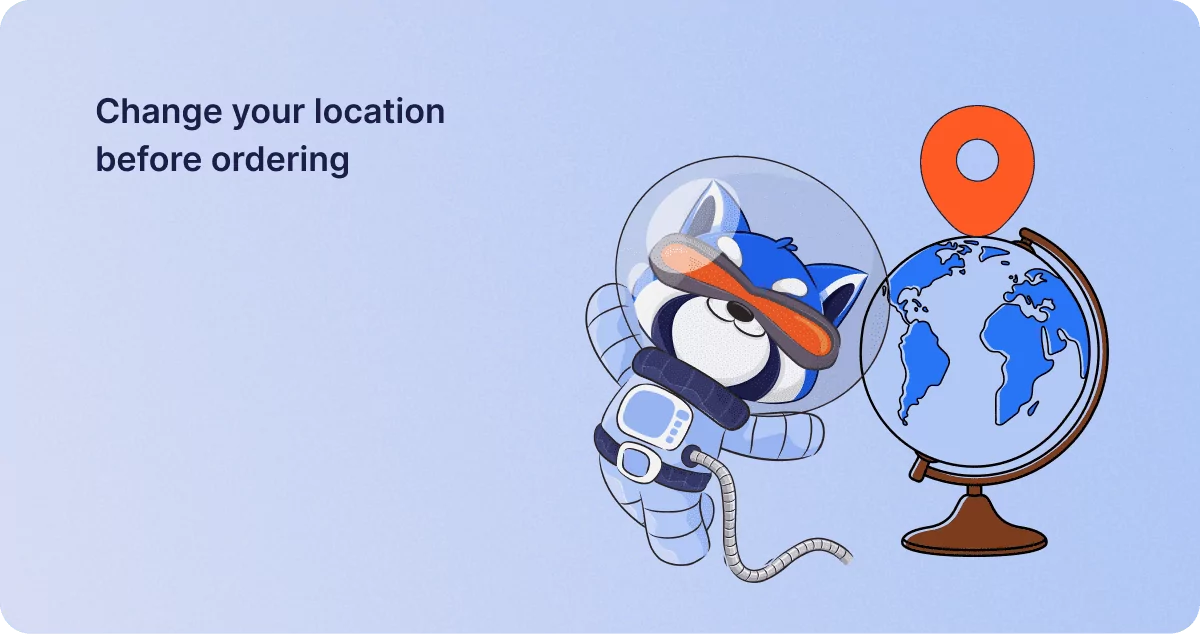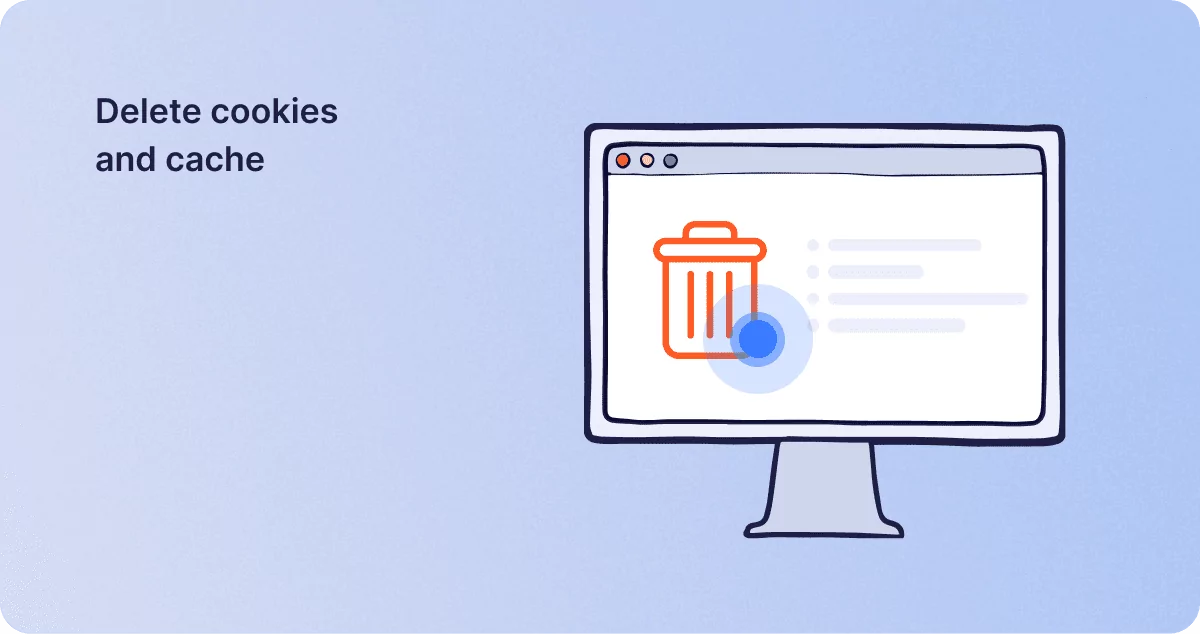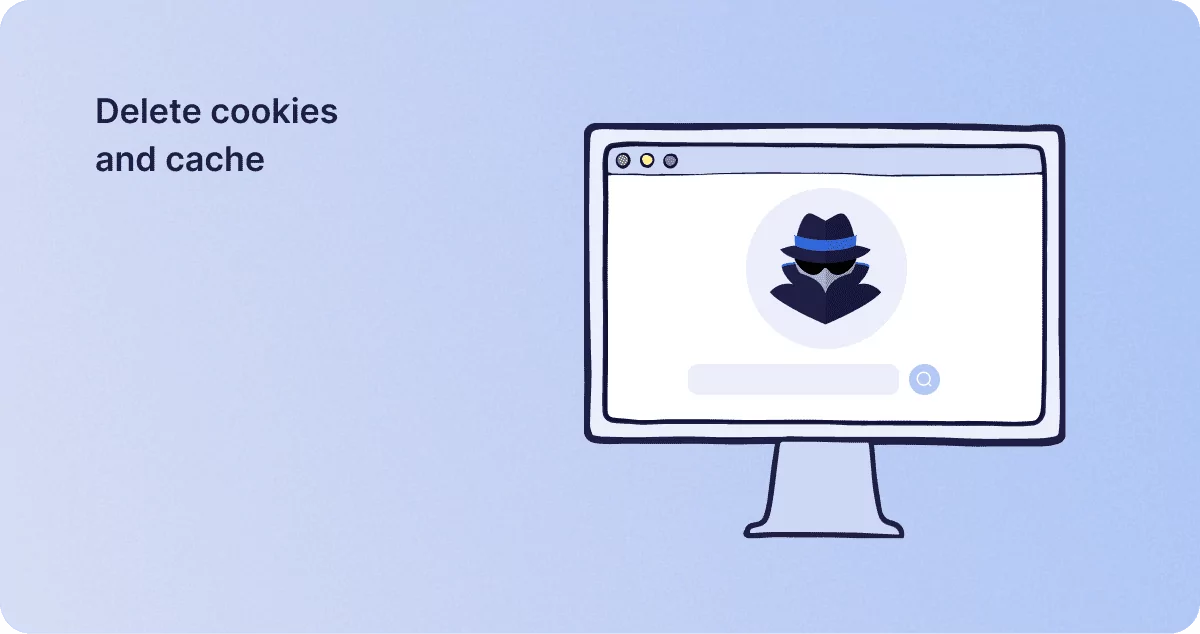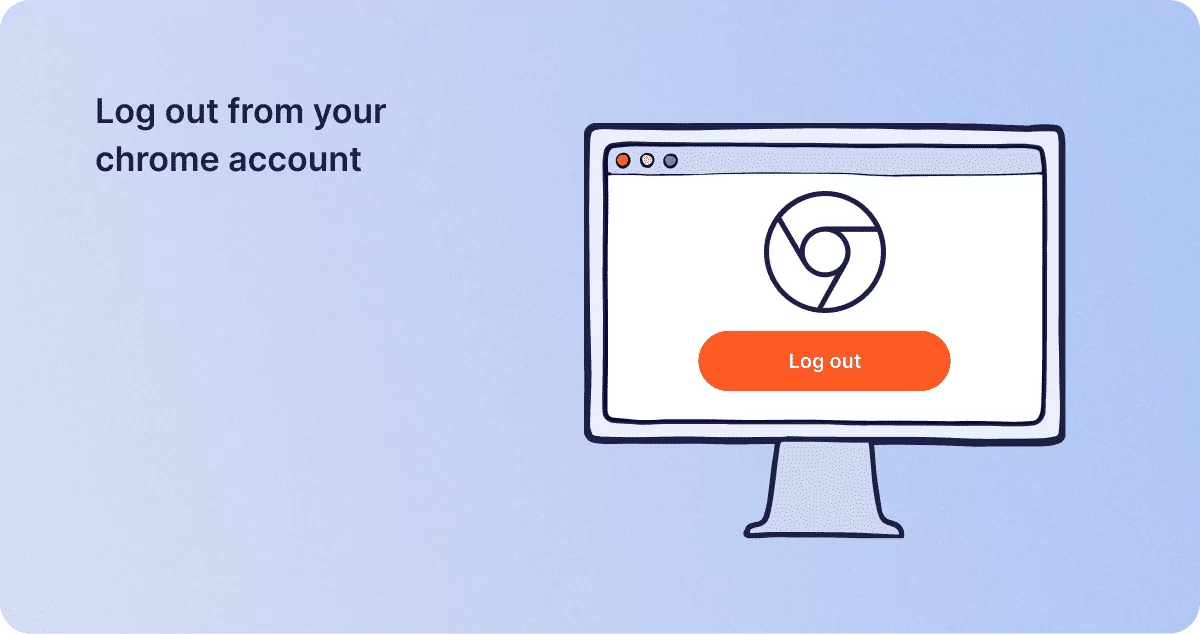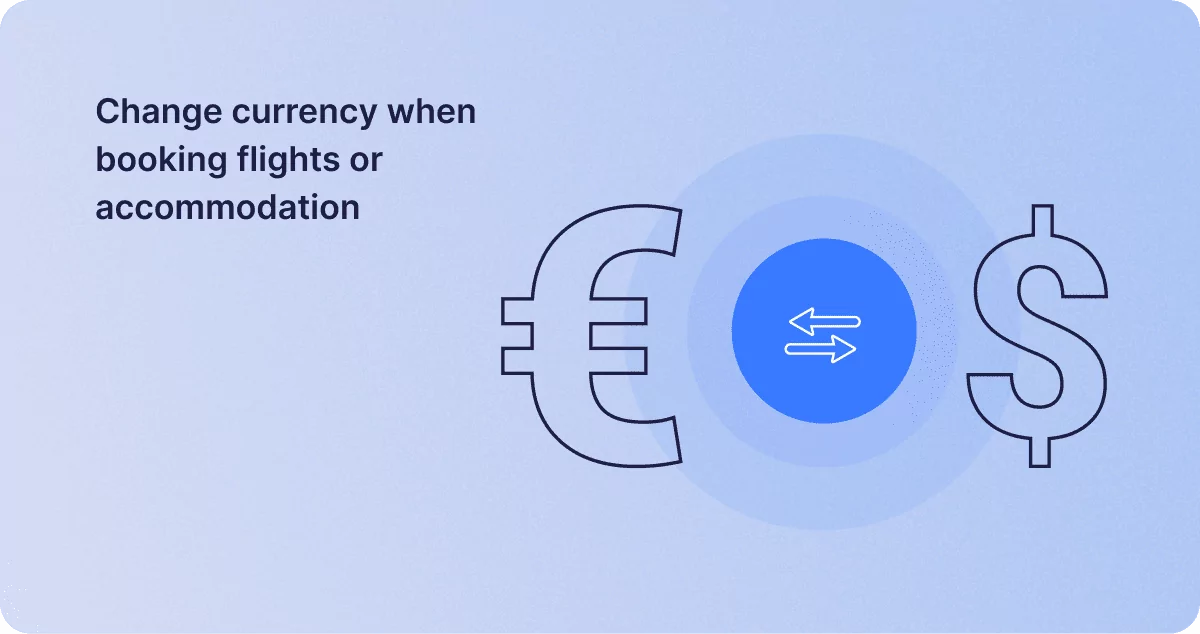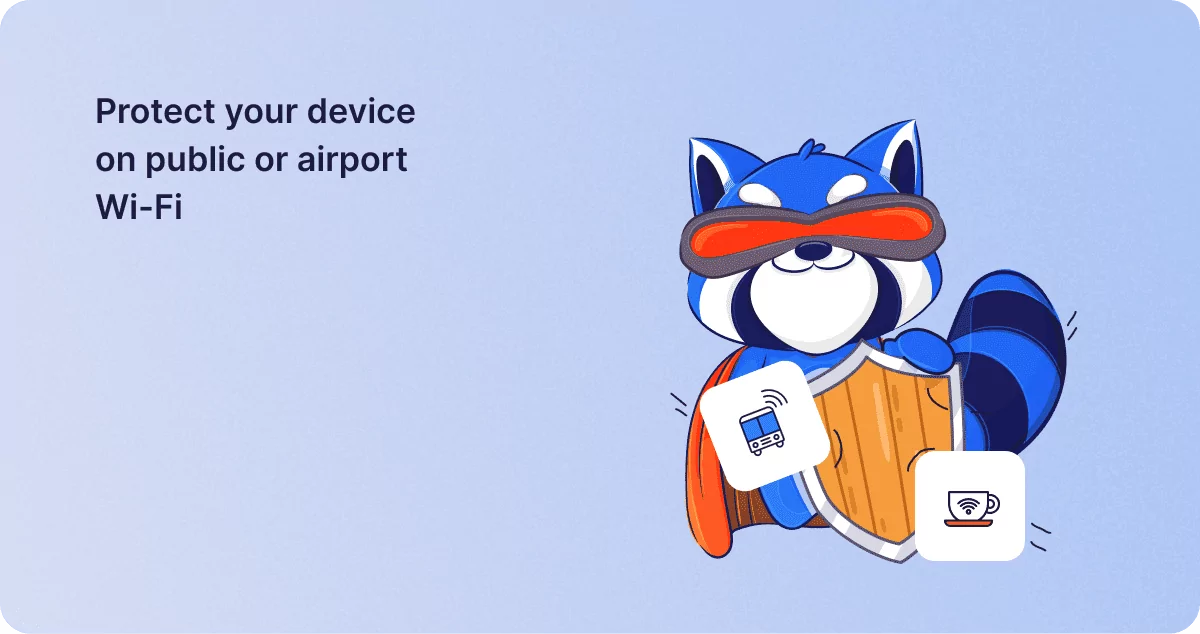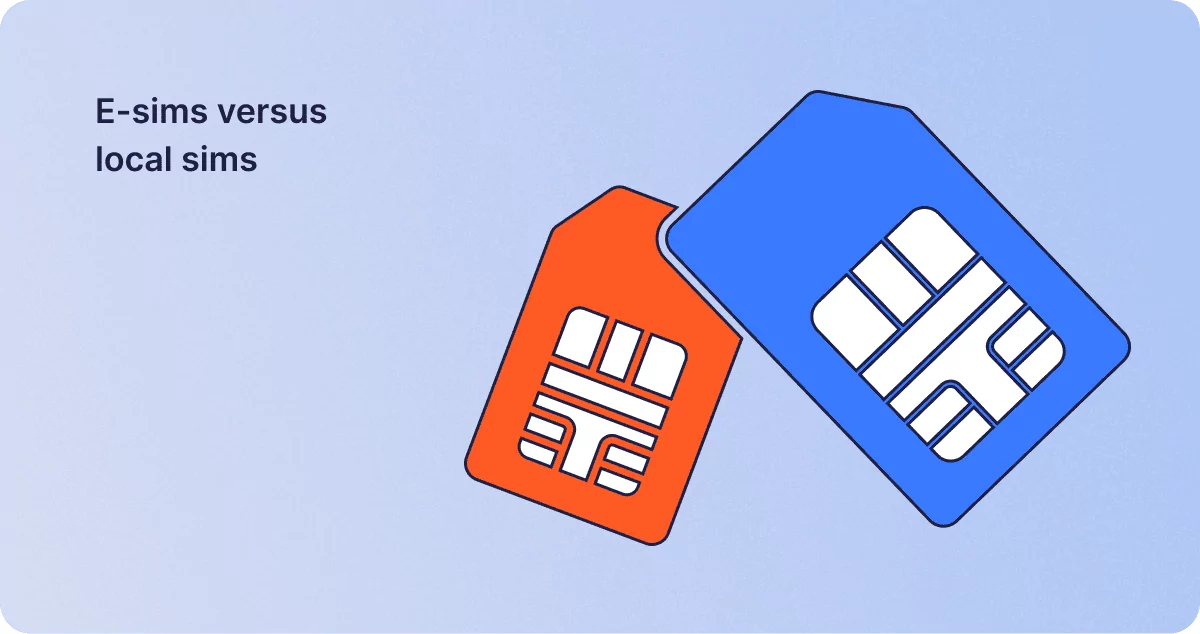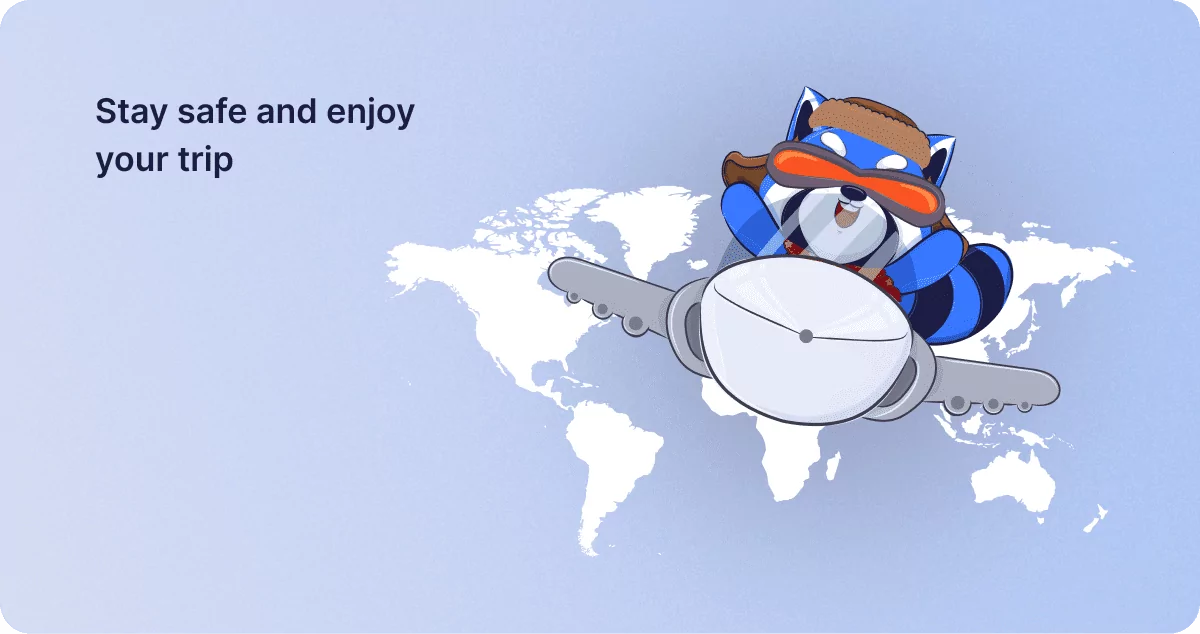8 Online Smart Travel Hacks Supercharged by VPN
1Click VPN Team in cybersecurity
07.12.2023 | 7 min read
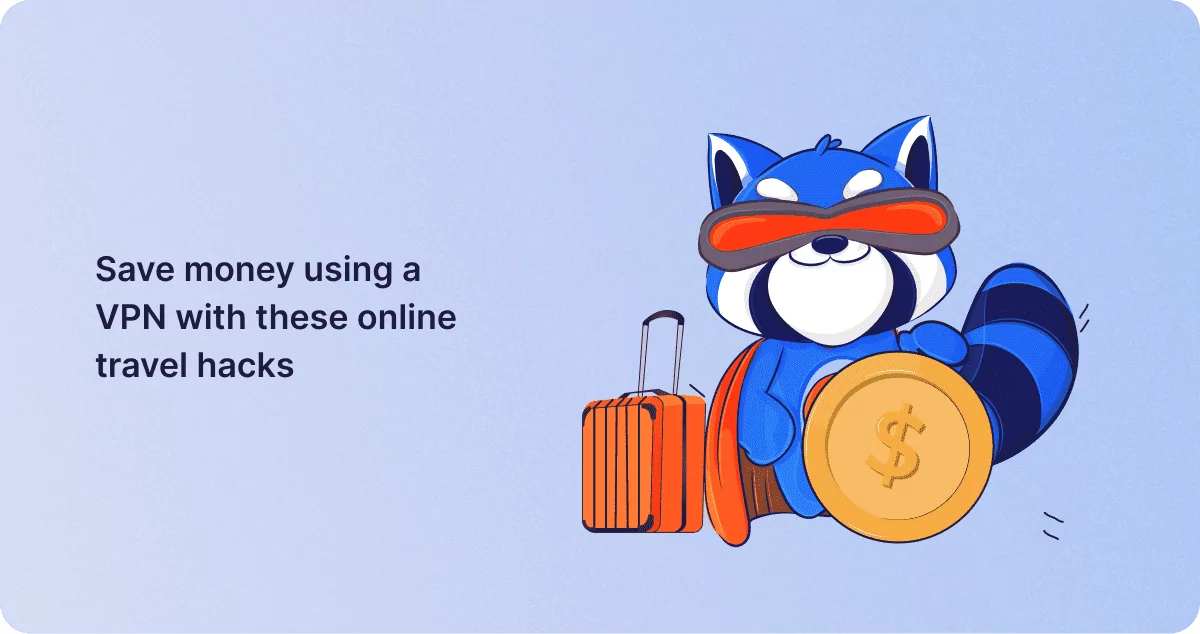
Table of contents
A virtual private network (VPN) allows you to access the internet via an encrypted ‘tunnel’ to a secure server before connecting to your internet service provider (ISP). This means that when you’re surfing the web from your usual home or office location, that your ISP can’t tell who you are (as encryption ensures your anonymity) nor where you are located. In fact, you can choose from an international network of servers and make it seem like you are in a different country to your actual location.
This facility allows you to save money on flights and hotels both when you’re at home or away travelling. The reason for this is simple: the concept of location-demographic dynamic pricing. If that sounds like a mouthful, what it means in everyday language is that some online travel retailers offer prices on travel tickets and hotel rooms based on what they ‘think’ you can afford. They make these value-driven suppositions on factors such as the device you’re using to access the internet and your location of residence.
For example, if your internet protocol (IP) address shows that you’re accessing the travel site from downtown Manhattan, and the website’s analytics software indicates that you’re using a MacBook Pro – it looks like you’re potentially someone wealthy in their swanky New York office. The flight you’re searching for could easily inflate in price as a result. But if you use a 10-year-old HP laptop to make your price inquiry and it looks like you’re resident in a Detroit trailer park, the prices come tumbling down like rain.
By using a VPN, the anonymous connection first removes the possibility of the target website identifying your device and you can choose from an international network of servers that appear to be in Mexico, Maui or Mauritius.
Change your location BEFORE ordering.
The only thing to remember is that you need to close your browser, restart it, log onto your VPN and choose a server location before you head over to the website of choice. If you try to change location halfway through your ticket or hotel room search, it’s already too late – your initial location is recorded by the site immediately you access the first page.
Naturally, third-party resellers of travel tickets and hotel rooms deny that the practice of dynamic pricing based on these criteria ever exists. They explain price fluctuations by simple supply and demand economics. It may be true that as they say, airline seats sell out on a particular flight so the fewer that are left the more expensive the remaining ones become. However, many seasoned travelers try the VPN location hack discussed here and get better deals. In the final analysis, if it works, do it!
Delete cookies and cache.
You can’t be too careful even when using a VPN to access the internet if you’re trying to get the best online prices. It’s always a good idea to delete cookies and clear any cached browser pages when looking for accommodation and travel tickets. For the uninitiated, cookies are simple text files that are stored in a web browser’s memory. They are almost like a username and password and are placed into the browser’s repository every time a user visits a website or even a page within that particular site.
Cookies therefore enable web servers to store data, such as products added to an online shopping trolley on an ecommerce site, or any search terms used for finding hotel accommodation. Cookies are stored on the user’s device and can also be used to save for subsequent pre-filling of form fields, such as passwords, names, addresses, and payment card details.
But that’s the crucial point. If an online flight or accommodation retailer detects one of their cookies, and therefore knows you’ve already looked at the cost of a flight to Honolulu last week, and now you’re looking again, you must be very keen to go. The price offered can be higher than if you are searching for the first time.
In short, if you clear your browser cache and all cookies before accessing your retailer of choice, it’s as if you’d never searched for anything on that site in the past. You’re an unknown quantity, which gives you the upper hand as a customer.
Run on incognito mode.
Again, even when using a VPN, it’s a good idea to get into the habit of running your browser on ‘private’ or ‘incognito’ mode. It’s important to note that this is not a substitute for the protection afforded by a VPN, because running on incognito mode doesn’t hide your web activity from ISP trackers, but it does prevent your browser from storing any cookies that websites might try to install.
The only disadvantage of running in incognito mode is that when you arrive at a website where you need to enter your username and password, these can’t be added automatically by the browser as your cookies are not present. It’s a small inconvenience, but if it saves $50 on a flight ticket, it’s almost certainly worth it.
Log out from your Chrome account.
If your Google account profile photo appears at the top RH corner of the browser when you’re using Google Chrome, it means that you’re logged in to your Google account. Depending upon your settings, this could well mean that all your search terms are being saved to your Google search history. If you log out of your Google account when using Chrome (or any other browser to be sure) then the searches that you perform won’t be remembered.
Not only can this prevent dynamic pricing hacks, but if you’re searching for a dating site and you’re already in a relationship… You get the picture!
Change currency when booking flights or accommodation.
As some travel aggregators offer disadvantageous exchange rates, it’s a good idea to check prices in various currencies and you’ll see the difference. Try this simple test:
Run on incognito mode within your VPN and search for a hotel room. Say you live in America, and you want to book a hotel in Paris, France.
Imagine that the currency on the site you’re using is set to USD $. The price displayed for a night at the three-star Jongleurs Hotel on the Place de Pigalle is displayed as $100. Then change the currency of the site preferences to Euros, and you might see a price of, say, 94 Euro. Next, open a new browser tab and go to an exchange rate site like exe.com. Type $100 and convert to Euros and you might well see that the rate shows 92 Euros.
Then clear your cache and restart the browser in incognito mode, then choose a server in France from your VPN. Revisit the same website and set the currency to Euros. You might not be surprised to find that the same room at the same hotel is now two Euros cheaper at 92 Euros. That’s another way that third-party resellers make money. They still pay the same amount to the hotel in question but pocket the difference on the exchange rate.
In short, always choose a VPN server in the same country where you want to stay or fly from and use the prevailing local currency to seek the best price.
Protect your device on public or airport Wi-Fi.
There’s a clever scam that can be pulled by hackers and cyber-criminals that takes advantage of people’s ignorance or laziness when it comes to logging onto public Wi-Fi networks. First of all, don’t assume that if public Wi-Fi has a password, that makes it secure. Far from it. Imagine the following scenario:
You arrive at the airport lounge having gone through security and treat yourself to a coffee or a cold beer while waiting an hour for your flight to be called. You open your laptop and look for any public Wi-Fi networks. The network ‘Sky Café’ pops up on your device. You look at the chalkboard above the bar and it states in large letters: ‘Sky Café Wi-Fi password Sky2023’
So you type that password into your device and within moments you are connected. What you didn’t notice was that there were two networks available, both with identical labels, both called Sky Café. There’s a 50% chance that you just logged onto a hacker’s personal hotspot. He’s the hippy-looking student at a corner table with his laptop open concentrating on his emails. And the email he just sent you was entitled ‘Welcome to JFK Airport’. You click on the email, wondering if there might be a special offer on tax free shopping or whatever. But you’ve just installed the hacker’s spyware on your device. From now on, wherever you are in the world, a copy of every password or credit card that you enter into your browser is sent to that crook’s server. Bad news!
Using a VPN would prevent this from happening, because the servers used to access the internet have sophisticated anti-virus and malware detection that would disconnect your device instantly from that network if any surreptitious download was detected from an email. Sure, it’s true that virus protection software can do that too, but within a VPN it’s built in as a matter of course.
The message is simple, when traveling with any internet connected device, keep your OS software up to date, your virus protection current and use a reputable VPN wherever you go, in any hotel, airport or café.
Download the VPN and activate it before you leave home so that you can learn how to use it properly – although a chimpanzee could learn how to use one in 30 seconds! Establish your credentials and protect all your home devices, especially the ones you intend to take on vacation or your business trip.
E-sims versus local sims
If you don’t want to pay expensive international roaming charges, then you’ll need to install a local SIM card into your phone for mobile data; unless you already have an expensive all-inclusive international roaming package. If you can afford one of those, you probably haven’t read this far down the page!
Depending upon the age of your phone, you may well have a setting that allows you to switch between an inbuilt e-sim (not a physical device but software driven circuitry)and a physical sim card.
The advantage to this is that you can use free roaming data and inclusive minutes from your domestic service provider on the physical sim, then when the limit is reached, reboot the device to use the e-sim programmed with a local telephony provider’s details. If you know what you’re doing, this is easier and cheaper than going to a phone shop and buying a local sim card and activating it.
You can tell if your device has an e-sim facility by simply going to its settings and selecting the sim card section. If the ‘download’ button shows, you effectively download the settings from the carrier concerned and activate the e-sim with a tap.
Stay safe and enjoy your trip.
In summary, doing a small amount of research into installing a VPN, having an e-sim enabled phone and taking sensible precautions with your device settings and location will allow you to have a worry-free holiday from technology troubles and internet baddies. Stay safe and enjoy your trips away!
Similar posts
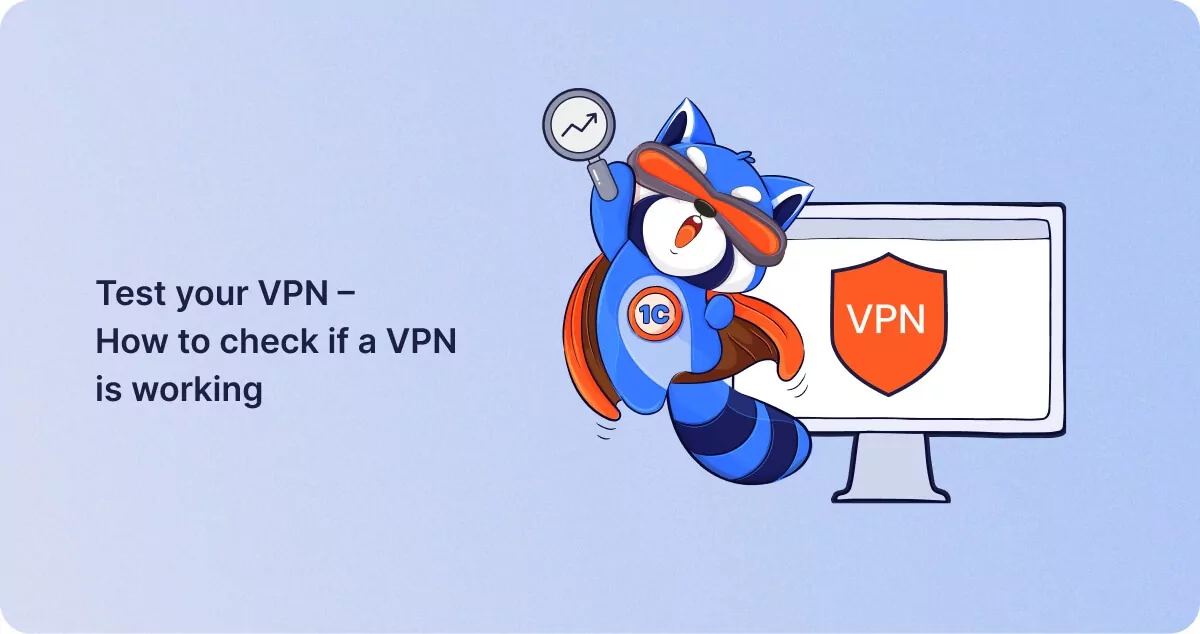
Test your VPN – How to check if a VPN is working
Virtual Private Networks have quickly become go-to tools for modern Internet users who are conscious of protecting their…

What is Third Party Risk Management (TPRM)?
It’s essential to know what third party risk management (TPRM) tools do in today’s age of increasing cybersecurity risks…
